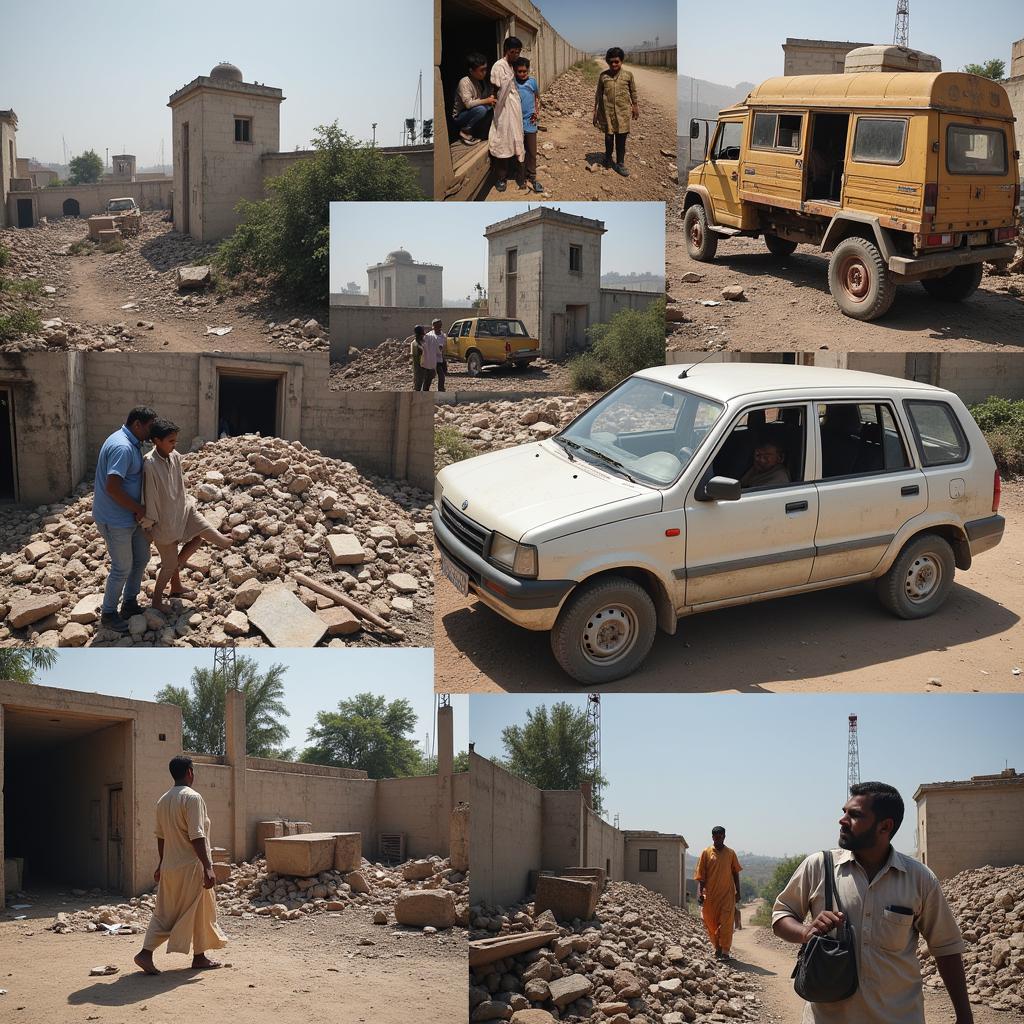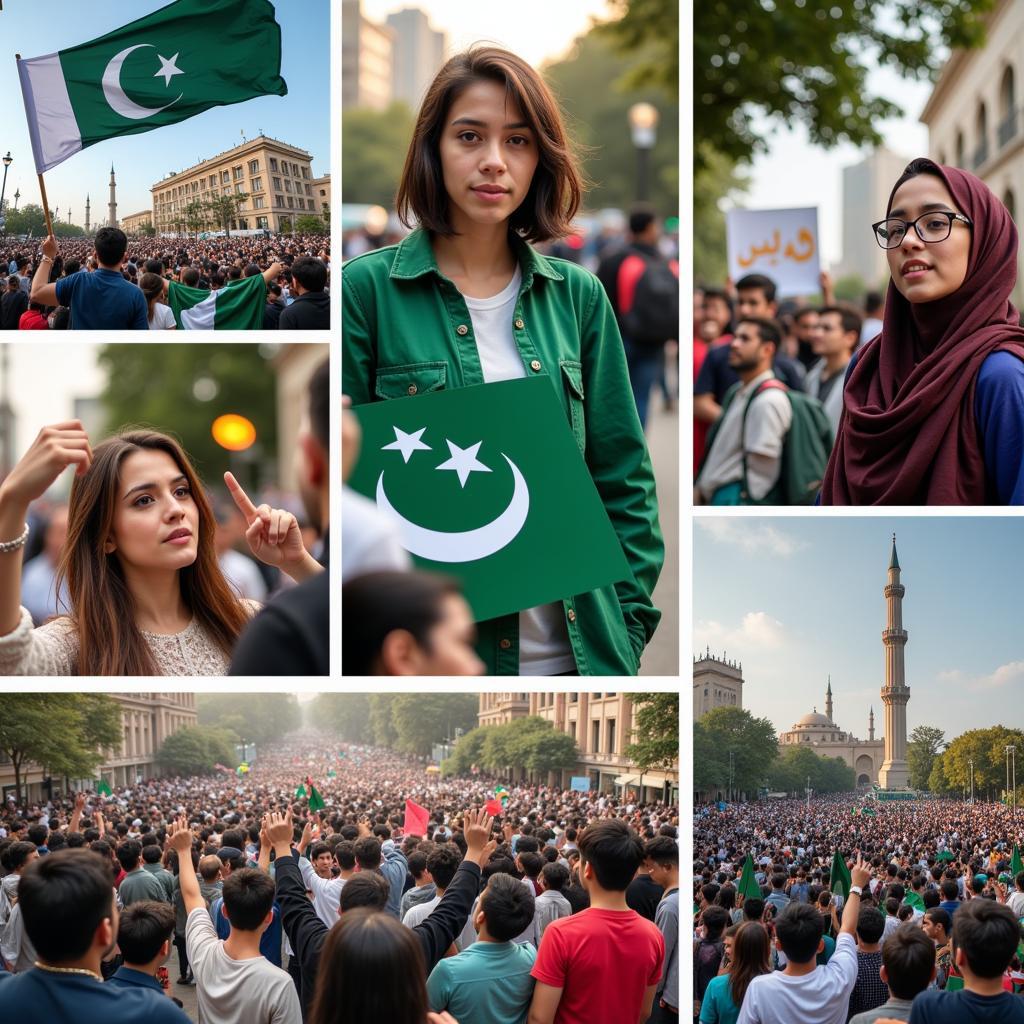Pakistan, since its inception in 1947, has grappled with the challenges of establishing a stable and thriving democracy. Despite periods of democratic rule, the nation has witnessed several military coups, protracted periods of authoritarianism, and a pervasive struggle for power between civilian institutions and the military establishment. This has led many to question the reasons behind the Failure Of Democracy In Pakistan.
A History Marred by Interruptions
The road to democracy has been anything but smooth for Pakistan. The assassination of its founder, Muhammad Ali Jinnah, just a year after independence created a power vacuum that the military was quick to fill. This set a dangerous precedent, with the military frequently intervening in civilian affairs, viewing itself as the ultimate guardian of the nation’s interests.
The Role of the Military
The military’s oversized role in Pakistani politics is arguably the biggest impediment to democratic consolidation. With control over vast economic resources and a pervasive influence on national security policy, the military has often acted as a state within a state. This has led to a lack of accountability and a culture of impunity that has undermined democratic norms and institutions.
Weak Civilian Institutions
Another key factor contributing to the reasons of failure of democracy in Pakistan is the weakness of civilian institutions. Political parties are often plagued by internal rifts, dynastic politics, and a lack of ideological clarity, eroding public trust and hindering effective governance.
 Weak governance and corruption hindering Pakistan’s progress.
Weak governance and corruption hindering Pakistan’s progress.
“Pakistan’s democratic institutions need to prioritize public welfare and good governance to regain the trust of the people,” says Pakistani political analyst, Ayesha Khan. “This requires moving away from personality-based politics towards a more issue-based approach.”
Economic Instability and Inequality
Chronic economic instability, characterized by low growth, high inflation, and a lack of investment, has further exacerbated the challenges facing democracy in Pakistan. Widespread poverty and inequality have created fertile ground for extremism and social unrest, making it difficult to establish a stable and inclusive political system.
Looking Ahead: Can Democracy Flourish in Pakistan?
The question of whether democracy can truly take root in Pakistan remains a complex and contested one. Addressing the deep-rooted structural issues outlined above is crucial for fostering a conducive environment for democratic consolidation.
The Need for Strong Institutions and Public Engagement
Strengthening civilian institutions, promoting good governance, and ensuring the rule of law are essential prerequisites for democratic progress. This involves reforming the electoral system, empowering parliament, and ensuring an independent judiciary.
Empowering the People
Equally important is the need for greater public engagement and participation in the political process. An informed and active citizenry can hold their leaders accountable and push for meaningful reforms.
 The future of democracy in Pakistan: Hope and challenges.
The future of democracy in Pakistan: Hope and challenges.
Conclusion
The failure of democracy in Pakistan is a complex issue with deep historical roots. While the journey towards a stable and functioning democracy remains challenging, it is not insurmountable. Addressing the issues of military intervention, strengthening civilian institutions, promoting economic development, and fostering a culture of democratic values are crucial steps in the right direction. Ultimately, the success of democracy in Pakistan hinges on the collective will and commitment of its people and its leaders.
FAQ
What were the main reasons for the failure of democracy in Pakistan?
Several factors contributed, including military coups, weak civilian institutions, economic instability, and a lack of political will.
What role does the military play in Pakistani politics?
The military has historically played a dominant role, often intervening in civilian affairs and hindering democratic consolidation.
Can democracy succeed in Pakistan?
Yes, but it requires strengthening democratic institutions, promoting good governance, and ensuring public participation in the political process.
Need Help?
For any assistance or inquiries, feel free to reach out to us:
- Phone: +923337849799
- Email: [email protected]
- Address: Dera Ghazi Khan Rd, Rakhni, Barkhan, Balochistan, Pakistan
Our dedicated customer support team is available 24/7 to assist you.
Leave a Reply